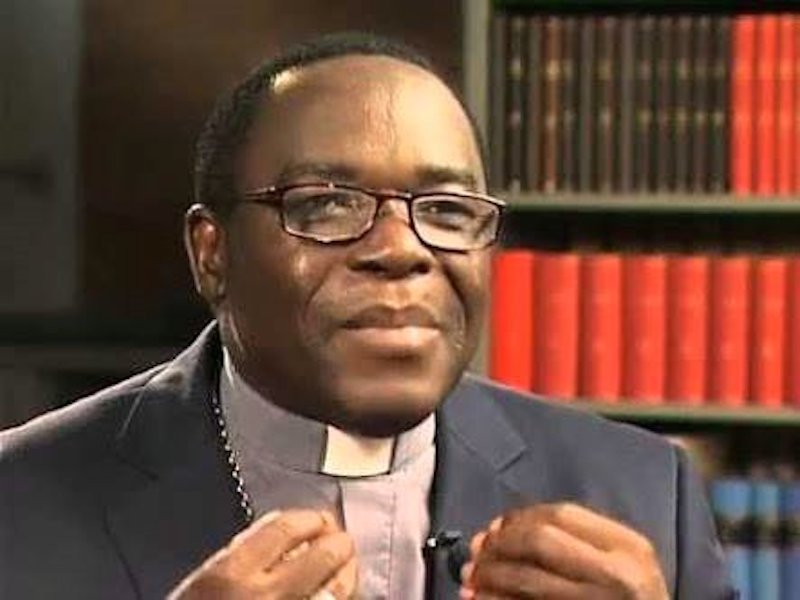The Bishop of the Catholic Diocese of Sokoto, Matthew Hassan-Kukah, has said in the 62-year history of Nigeria, spanning democratic and military governments, no president or head of state was ready to hit the ground running.
“You can go all the way down in Nigeria, you’re not going to find one single person who has been president or head of state in Nigeria that came prepared for the job,” Kukah said during an appearance on Channels Television’s Roadmap 2023, on Sunday.
Since attaining independence on October 1, 1960, Nigeria has had 16 leaders – eight civilian presidents/prime ministers and eight military heads of state.
The civilian leaders include late Prime Minister Abubakar Tafawa Balewa (1960-1966), and presidents Nnamdi Azikiwe (1963-1966), Shehu Shagari (1979-1983), Ernest Shonekan (Aug.-Nov. 1993), Olusegun Obasanjo (1999-2007), Umaru Yar’Adua (2007-2010), Goodluck Jonathan (2010-2015), and Muhammadu Buhari (2015-date).
Meanwhile, previous military heads of state include Major-General Aguiyi Ironsi (Jan.-Jul. 1966), General Yakubu Gowon (1966-1975), General Murtala Muhammed (1975-1976), and General Olusegun Obasanjo (1976-1979).

Read Also: How scavenging is contributing to-out-of school children figures in Kano
Others are Major-General Muhammadu Buhari (1983-1985), General Ibrahim Babangida (1985-1993), General Sani Abacha (1993-1998), and General Abdulsalami Abubakar (1998-1999).
Kukah used the analogy of a bad marriage to explain the relationship between Nigeria and its political leaders.
“I always say to people as a priest that the solution to a bad marriage is not a new marriage. It’s often an attempt to look at what has gone wrong. And if you jump to a new marriage very quickly, after some time, you become nostalgic about the first marriage.
“Metaphorically, you can say the same thing about Nigeria. A lot of these changes that we have seen in Nigeria are largely unprogrammed.”
According to the clergyman, going back as far as the 1960s running through the entire leadership history from prime minister or president to beneficiaries of military coups, there has been no “linearity”.
“There’s been nothing linear,” he explained. “In the sense that military coups by themselves that stretch over a 20-year period were just glorified banditry and armed robbery because you pull the gun and became a head of state.”
Giving a snapshot of Nigeria’s recent political history, Kukah argued that the country has yet to produce an executive head who is prepared for office.
“If I take you back, we have President Buhari now. President Buhari already in 2011 had said, ‘I don’t want to be president again, I’m tired.’ He was literally pulled out screaming to be president in 2015.
“He took over from Jonathan. Jonathan himself, you know the circumstances that brought him to power. Yar’Adua before him; Yar’Adua was already saying, ‘I’m done, I want to go back to teach in the university.’”
Kukah maintained that the parallel of unpreparedness was evident in Yar’Adua’s predecessor, former President Olusegun Obasanjo.
“Obasanjo was in prison hoping that one day, he would walk out of prison, and if he’s strong enough, he’d go back to his farm. You can go on and on.
“Abdulsalami was about to be retired from the military when Abacha died, and he became head of state. If we’re to return to the scene of the crime, that’s where you have to go back to.”
Pondering Nigeria’s inability to tackle the challenges of providing basic needs, Kukah stated that there is the need for leadership resulting from individuals taking the time to understand the problems of Nigeria and planning accordingly.
He alluded to the dependency of Nigeria’s future on its leaders “figuring out why we don’t have electricity, and figuring out why we don’t have roads, why are we so chaotic, that is, away from the shadows of governance and politics. Just thinking through whether it’s by way of a retreat.”
According to him, a government will achieve results if it comes through with seminars and conferences that produce an aggregate of answers and possible suggestions alongside a database of potential appointees with the required capacity.



Comments are closed.